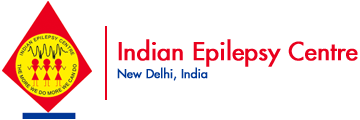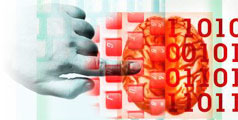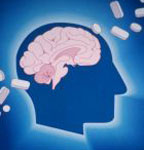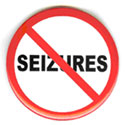
PLEASE CALL: 011-41614141
& 45695542
(Between 11:30 AM - 5:30 PM)

 |
FOR APPOINTMENTS PLEASE CALL: 011-41614141 & 45695542 (Between 11:30 AM - 5:30 PM) |
 |
Epilepsy TreatmentNew Hope For Epilepsy Patients - Indian Epilepsy Centre (IEC)Epilepsy is the commonest serious disorder of the brain. As per the estimates, 1 out of every 100 - 200 persons in India, suffers from epilepsy. Though epilepsy need not be feared more than diabetes or hypertension, yet there is social stigma as well as myths attached to it. These baseless apprehensions stem from the widespread ignorance about epilepsy. However, the truth is, that epilepsy can be treated. Patients of epilepsy can also lead a normal, healthy life. The truth behind epilepsyAll patients with epilepsy have "fits", but not every patient who has suffered a "fit" can be declared an epilepsy patient. To be diagnosed as a case of epilepsy, a patient must have suffered at least two unprovoked fits. Epileptic “fits” or “seizures” occur as a result of an occasional, sudden, excessive electrical discharge from cells in the brain. It is like an “electrical short-circuiting” or an “electrical storm” in the brain cells. Epilepsy can result from an injury to the brain, infection in the brain or any other insult to the brain. Many times there is no obvious cause for epilepsy, when it is believed to be due to hereditary abnormalities. Epilepsy can be treated and controlledEpilepsy is a treatable disorder. Seizures or fits in about 60-70% patients with epilepsy can be treated and controlled using one simple and inexpensive drug. About 15-20% patients can be helped by the use of more than one drug and some new anti-epileptic drugs that are slightly expensive. The seizures are poorly controlled in about 5-10% of patients who need to be investigated for possible surgical treatment for their epilepsy. Epilepsy surgery in carefully selected patients can even cure epilepsy. With a correct treatment approach, most patients with epilepsy can enjoy life as much as a healthy person can. They can lead full, productive lives... they can continue their studies, go out to work or meet people, even pursue any personal interests that they may wish to. Indian Epilepsy Centre (IEC) - dedicated to treating epilepsyIEC is an endeavour to provide specialised medical treatment to epilepsy patients, IEC is headed by Prof. Satish Jain. Prof. Jain has an experience of almost 30 years and has been associated with the leading international health agencies in their global campaign against epilepsy. Prof. Jain was formerly a Professor of Neurology and in-charge of the Comprehensive Epilepsy Care facility at the All India Institute of Medical Sciences, New Delhi.
and also has arrangements for all sophisticated tests including
Patient counseling is an important component in the treatment of epilepsy at the IEC. Often the social stigma and misconceptions attached to epilepsy deprive patients of the right treatment and affect their families also. Therefore, such patients at IEC are given expert counseling, to help them overcome the challenges posed by such social stigma and lead a productive life. The counseling sessions are conducted for the family members of patients also. Don't let epilepsy stop you or your near ones from moving ahead. Get the right treatment from a top epilepsy specialist, supported by a dedicated set of facilities at the IEC. |
Myths & Facts  |